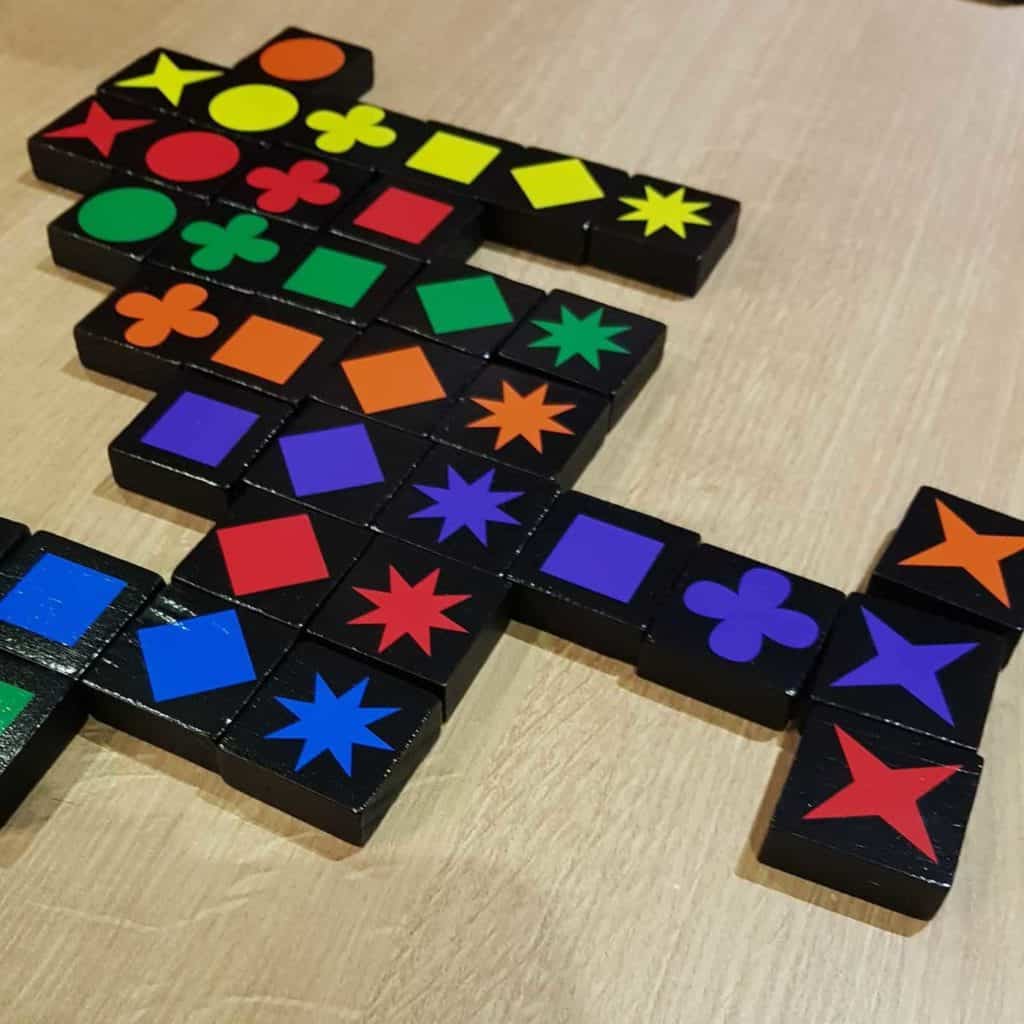
I was recently struck by the weird, wonderful uniqueness of families. We all know that we are unique. I like to think that God made us each in His image yet all different so that in each individual I meet, I meet a different part of His image. When I think about His attributes, patience, kindness, generosity, justice, I know this to be true.
Now, think of your family, each member unique, creating a unique collection of humans which is different from any other on earth either now or that has ever been. The funny thing is, we generally see our family as normal, all the quirks and strange words being the only thing we know until we start to hang out with other people. And if we get married, we suddenly find that what we thought was normal is completely alien to someone from another unique family, with all their ‘normal’ oddities.
I recently ran a GodVenture Family Activity Workshop for 30 families, and each one that came was different. So as to cope with their uniqueness, in my head I organised them into different categories:
- those with children under 5
- those with 4 or more children
- those I had met before
- those who came with grandparents
However, as I met and chatted with them, I got to know a little bit of their uniqueness, the things they enjoyed, the different contributions each person makes to their family life. And I discovered some of the different ways they interacted as a family together and with God.
Family uniqueness isn’t static. We’re always changing! At this event, I challenged the families to add their ages to discover ‘how old’ their family was. Then I asked them who had a birthday in the next few months, and then to imagine adding up their ages after those birthdays. This simple activity helps us remember how often our families change. And, of course, it’s not just age, but abilities: when our children are young, these changes happen fast and often, and what they’re able to do changes from month to month. As they grow up, things happen more in spurts, and even as adults we often develop new skills and expertise, even if we don’t get a certificate! Some changes happen due to our growth but also other changes are driven by external forces, a change of school year or a change in job or role.
Each family I met was in a different stage of life. Some families were in the ‘young children’ stage, where life revolves more around meeting basic needs, while others were in the ‘tweenage stage’ where their children’s opinions and independence played a large role. Some had older teens and were seeing them begin to live more independently.
And then there were the season they were in. I shared with them about how last year we went through a hard but good season where we lived in a tent for ten weeks, and then for four months in a caravan. We’re now in a bungalow and into a different, easier season in some ways, though it’s also mixed with grief, as we recently lost an extended family member to cancer. It might not always be easy to spot the season our family is in, but by asking what the dominant emotions are, what the shared joys and sorrows are helps us to find where we might be in our shared journey of life.
This means that at the point I met these families, the things they needed to help them growth in their faith together are unique for them and for this time. I encouraged them to embrace this change and look for things which work for their family now, knowing that it probably won’t work forever. What works this week might work for a bit, then might need tweaking or adding to, and sometimes completely changing.
It’s the game parents play all the time. From the time our children are born we are working on making sure they have clothes which fit, toys which suit their current development, books which work for their interest and ability. It’s the same with spiritual growth. We need to get rid of the idea that there is a set list of What Families Do To Do Faith At Home Together, and realise that the list is a long and wide as a list of families and the seasons they go through. We can definitely get ideas from each other – I love hearing what different people do – but I use those ideas as a bank to help augment what we do as the need arises.
Sometimes as a creative person, I’m tempted to try too many new things, not repeating things enough, while often repetition is a helpful way to build a ritual and culture around a spiritual activity. Perhaps you’re the opposite, and hold on to a ‘good idea’ way longer than it is actually helping people to connect with God.
What I know it that we all need to find what works for our family now, and to be open to flex and change as we move forward together as families.
Here are some ideas on how you can work out what might work for your family now:
1 Look at what you love doing together
This might be eating, watching films, riding bikes, playing with balloons. Whatever it is, ask God to show you how it might already be helping faith grow, and what, if anything, you could do to help it be more effective in building spiritual growth into your family.
2 Ask other people
Find someone who’s a few years ahead of you in ‘life stage’, ie has children a few years older than yours and ask them what worked for them in the stage you’re in. Then, don’t try to apply their ideas wholesale, but think about the ways in which your families might be similar, and try ideas which work with that. If you do try an idea they share, don’t forget to encourage them – or ask them questions to help you continue to make it work well for your family.
3 Explore Bible stories in the way your family explores other stories
Do you like reading books together or watching films? Playing stories with toys or sharing stories about your family history? Think about the way you share stories, and experiment sharing Bible stories in a similar way.
4 Pray in ways which you enjoy communicating
I love drawing, writing, singing. dancing, and composing songs. I also pray in all these ways. What ways do your family communicate? Do they like writing notes? Giving gifts? What creative activities do they do? Look for ways to use these in your prayer life together.
5 Look for ways to reach out together
What issues are your family interested in? What gets a conversation fired up in your home? Are there things you really care about? These could be things which you could work together to serve others and make a difference in the world.
6 Try out some new things
If you’d like to branch out, why not introduce some different ways to ‘do faith’ together? Perhaps introduce a new thing each month, or take it in turns to bring a new idea to the family. You might be surprised what children will suggest! If your children are younger, you could provide a few options for everyone to respond to a Bible story, perhaps some toys to re-play the story, some art materials to create a picture, a pile of cushions and books to sit and read or pray quietly and a set of construction material to create a model. Give everyone 20-30 minutes then compare notes about what you did, what you liked and what perhaps they felt God did.
7 Work out something for the specific season you are in
When we were living in a tent for 10 weeks, I worked hard to make the transition a good one, and to incorporate our spiritual habits into our new lifestyle. For us this meant working out how to do our weekly Shabbat meal in a tent and celebrating Baptism birthdays and Biblical Festivals as they came up. I took a small kit with us to help us do this. You could spend time together working out what season you might be in at the moment and thinking about what would help you best connect with God during this season. f
